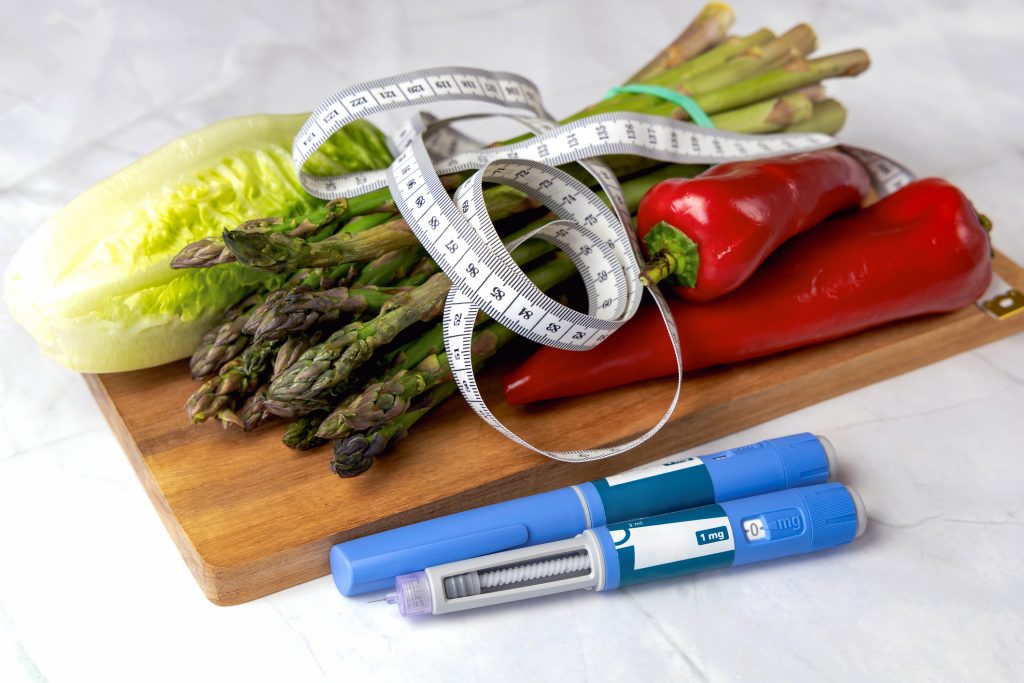I had a dream the other night about a pill or maybe one of those new jabs that could simply melt away the weight we wish we didn’t have. It felt so real that I woke up thinking about it. Because let’s be honest who hasn’t been tempted by the idea of a quick fix? Whether it’s a few extra pounds, a stubborn stone, or just the desire to feel better in our clothes, it’s such an easy trap to fall into.
The truth is, we live in a world completely consumed by the topic of weight loss. It’s everywhere from morning TV to social media, to the endless stream of diet books promising transformation. The global weight-management industry was worth over $250 billion in 2021 and is expected to grow to nearly $377 billion by 2026. That’s an astonishing figure — and it tells us something important about how much time, money, and emotion people pour into trying to change their bodies.
Then there are the books. Thousands of them. Every year, new diet titles appear with bold claims of transformation and fresh spins on old ideas. Some reports suggest that more than 1,500 new diet books are published each year in the English-speaking world alone, each one vying for attention in an already overcrowded conversation. It’s no wonder so many people feel lost.
For decades, the message has been simple: eat less, move more, try harder. Then suddenly, a weekly injection arrives — and everything changes.
Drugs like Ozempic, Wegovy, and Mounjaro — part of the GLP-1 family — have been described as revolutionary. And for some people, they absolutely are. They can lower blood sugar, support dramatic weight loss, and even reduce the risk of heart disease. For those facing serious health challenges, these medications can be life-saving, offering a second chance at wellbeing. That’s something worth celebrating.
My concern lies elsewhere. It’s not about whether these drugs “work” they clearly can. It’s about what happens next. Studies show that once people stop taking them, many regain much of the weight they lost within a year. That’s not failure; that’s biology reminding us that the real challenge isn’t just losing weight it’s learning how to live well afterwards.
The hardest thing isn’t shedding pounds it’s learning how to live in a body that feels good, free, and grounded. A body you respect and understand. That’s a much bigger, more emotional journey — one that no quick fix can shortcut.
Even for someone like me — who loves food, who finds peace in the kitchen, who believes in the joy of eating well — I understand how these thoughts creep in. You scroll through transformation posts, you hear a friend’s success story, and there’s that quiet whisper: Could I? Should I? It’s not vanity; it’s human. We all want to feel good, to feel like we belong, to keep up.
The truth is, health isn’t a competition and it certainly isn’t one-size-fits-all. Between the booming diet-book industry, the relentless marketing of quick fixes, and the powerful science behind these new weight-loss drugs, it’s easy to lose our sense of balance. The conversation has become so loud that we’ve forgotten to ask the most important question of all: What does health actually mean to me?
While a drug might help you lose weight, it can’t teach you how to nourish yourself how to cook a meal that feels good, how to move your body with joy, how to rebuild trust with yourself. Those things take time, curiosity, and connection.
And that’s what I fear we’re in danger of losing — the connection. Food isn’t just fuel. It’s community. It’s creativity. It’s love. Sitting around a table, sharing stories, laughing, tasting, being present that’s where real nourishment begins. The kitchen, for me, is meditation in motion: chopping, stirring, creating, healing.
So yes, there’s a place for Ozempic, Wegovy, and Mounjaro — especially for those facing serious health concerns. But there’s also a place for slowing down. For asking, What am I really looking for? What would make me feel whole, not just thinner? What do I actually need — physically, emotionally, spiritually — to live well?
Maybe the most transformative step any of us can take isn’t an injection or a diet at all. It’s the decision to pause. To breathe. To listen. To ask the difficult questions and wait for honest answers.
Sustainable health isn’t something we buy it’s something we build. Slowly, gently, with awareness. And maybe that’s the real evolution here: that even in an age of fast fixes and breakthrough science, the deepest form of wellbeing still comes from tuning in, not checking out.
